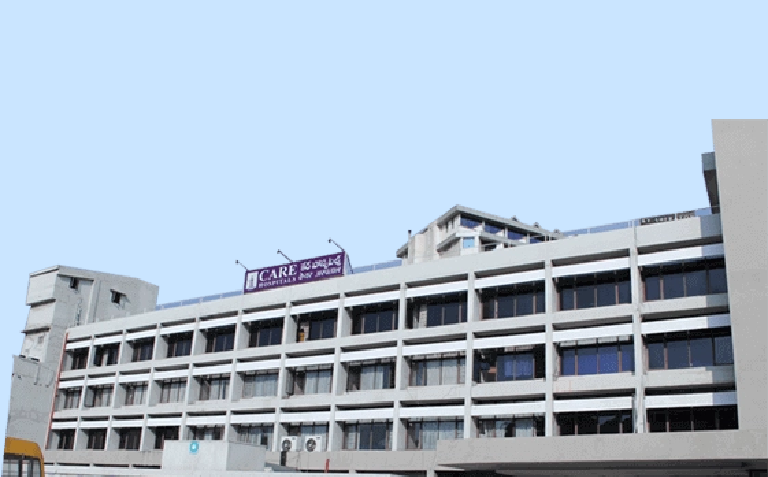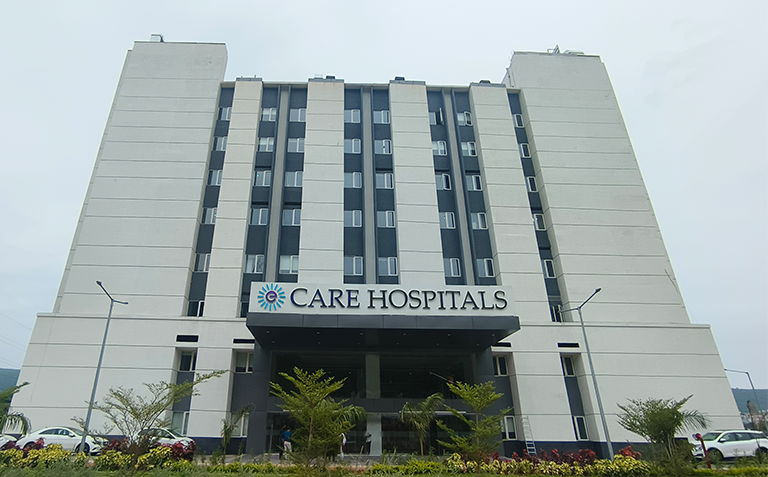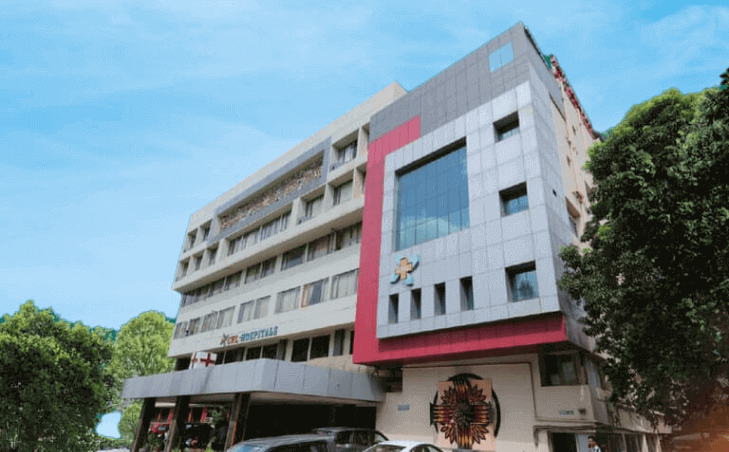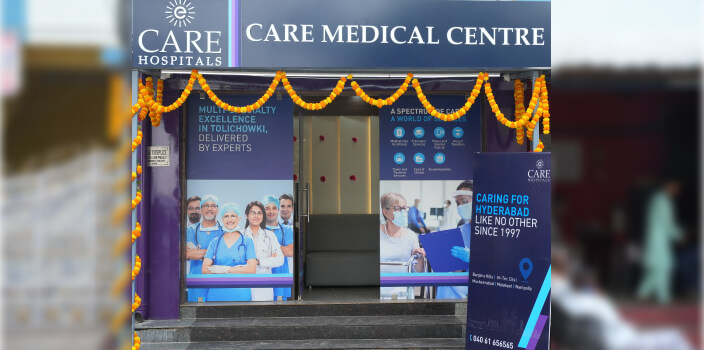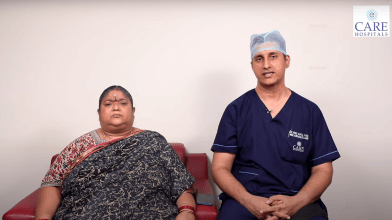-
Doctors
-
Specialities & Treatments
Centre of Excellence
Specialties
Treatments and Procedures
Hospitals & Directions HyderabadCARE Hospitals, Banjara Hills CARE Outpatient Centre, Banjara Hills CARE Hospitals, HITEC City CARE Hospitals, Nampally Gurunanak CARE Hospitals, Musheerabad CARE Hospitals Outpatient Centre, HITEC City CARE Hospitals, Malakpet
HyderabadCARE Hospitals, Banjara Hills CARE Outpatient Centre, Banjara Hills CARE Hospitals, HITEC City CARE Hospitals, Nampally Gurunanak CARE Hospitals, Musheerabad CARE Hospitals Outpatient Centre, HITEC City CARE Hospitals, Malakpet Raipur
Raipur
 Bhubaneswar
Bhubaneswar Visakhapatnam
Visakhapatnam
 Nagpur
Nagpur
 Indore
Indore
 Chh. Sambhajinagar
Chh. SambhajinagarClinics & Medical Centers
Book an AppointmentContact Us
Online Lab Reports
Book an Appointment
Consult Super-Specialist Doctors at CARE Hospitals

Laparoscopic and Bariatric Surgery
Laparoscopic and Bariatric Surgery
Best Bariatric and Laproscopic surgery Hospital in Hyderabad, India
Obesity can often cause several life-threatening diseases in people. People who suffer from severe obesity with a BMI of over 40 and life-threatening conditions may need to go through certain medical procedures to reduce the risk factor of their diseases.
Bariatric Surgery is one such procedure that is used for patients who suffer from severe obesity along with many metabolic disorders. A combination of these two could be life-threatening. Hence, gastric bypass along with other weight-loss surgeries (collectively called bariatric surgery) is often recommended to these patients. However, it is important to keep in mind that bariatric surgery is not a cosmetic procedure. Contrary to this, it is a life-saving procedure only recommended to patients who are in dire need of it. This includes those who haven't been able to improve their condition using diet changes and exercise. Moreover, the surgery consists of major procedures which may pose the danger of side effects and risk factors like any major surgery.
Who requires the surgery?
The surgery aims at reducing the weight of severely obese patients with a BMI of 40 or above who are at risk of life-threatening conditions like high blood pressure, high cholesterol, sleep apnea, heart diseases, stroke, Type 2 diabetes, NAFLD (Nonalcoholic fatty liver disease) or NASH (nonalcoholic steatohepatitis).
People with a BMI of 35-40 may also be prescribed this surgery if they have severe weight-related issues. However, it must be kept in mind that the surgery requires patients to meet certain guidelines and not everyone who is obese can opt for Bariatric surgery. Even after the procedure, patients are required to make major lifestyle changes and do regular follow-ups to monitor their health condition.
Types of Bariatric Surgery
- Gastric Bypass: This is one of the most commonly prescribed forms of Bariatric surgery. The way this surgery works for reducing the weight of the patients is by creating a small pouch from the stomach and connecting the newly created pouch directly to the small intestine. The food swallowed by the person then goes into the small pouch from where it is directed to the small intestine. This way only a limited amount of food enters their body.
- Weight Loss Surgery: This is another type of Bariatric surgery where the goal is to limit the food intake of the patient. This is done by preventing the stomach from extending to its full size. During this surgery, the surgeon may use three of the following techniques:
-
Laparoscopic adjustable gastric banding
-
Vertical banded gastroplasty
-
Sleeve gastrectomy
- Biliopancreatic diversion with duodenal switch (BPD/DS)
-
This is one of the least common types of weight-loss surgeries. This is done in two steps, the first of which is a sleeve gastrectomy. In the second step, a portion of the intestine is bypassed and its end portion is then connected to the duodenum near the stomach. The aim of the surgery is not just to limit the amount of food that a person ingests but also to reduce the absorption of nutrients like proteins and fats.
Risk factors
As has been mentioned, bariatric surgery is a term referring to several surgeries aimed at reducing the weight of a person. As with any other surgery, bariatric surgery may pose certain health risks. These complications may be both short-term and long-term. Infections, excessive bleeding, blood clots, bowel obstruction, dumping syndrome, breathing problems, etc. are common risk factors associated with Bariatric surgery.
Benefits of Laparoscopic and Bariatric Surgery
Laparoscopic surgery, particularly in the context of bariatric surgery (weight loss surgery), offers several benefits compared to traditional open surgical approaches. Here are the benefits of both laparoscopic and bariatric surgery:
Benefits of Laparoscopic Surgery:
- Minimally Invasive: Laparoscopic surgery involves making small incisions through which specialized instruments and a camera (laparoscope) are inserted. This minimally invasive approach results in less tissue trauma, reduced postoperative pain, and faster recovery compared to open surgery.
- Smaller Incisions: Laparoscopic procedures require smaller incisions, resulting in minimal scarring and improved cosmetic outcomes. Patients often experience less discomfort and have smaller, less noticeable scars compared to open surgery.
- Faster Recovery: Due to the reduced tissue trauma and smaller incisions, patients undergoing laparoscopic surgery typically experience shorter hospital stays and quicker recovery times. They can return to normal activities, including work and exercise, sooner than with open surgery.
- Reduced Risk of Complications: Laparoscopic surgery is associated with a lower risk of complications such as wound infections, hernias, and incisional complications compared to open surgery. The minimally invasive approach leads to less blood loss, lower rates of infection, and decreased risk of postoperative complications.
- Better Visualization: Laparoscopic procedures provide surgeons with a magnified, high-definition view of the surgical site using a camera inserted through one of the small incisions. This enhanced visualization allows for greater precision, accuracy, and control during surgery.
- Broad Range of Applications: Laparoscopic surgery can be used to treat a wide variety of conditions across different medical specialties, including bariatric surgery, gastrointestinal surgery, gynecological surgery, urological surgery, and general surgery.
Benefits of Bariatric Surgery:
- Effective Weight Loss: Bariatric surgery, such as gastric bypass, sleeve gastrectomy, and adjustable gastric banding, is highly effective in promoting significant and sustained weight loss in patients with obesity. It can help individuals achieve substantial weight loss and improve obesity-related health conditions such as type 2 diabetes, hypertension, and sleep apnea.
- Resolution of Obesity-Related Health Conditions: Bariatric surgery can lead to the resolution or improvement of obesity-related health conditions, including type 2 diabetes, hypertension, high cholesterol, obstructive sleep apnea, and joint pain. Many patients experience remission of these conditions following weight loss surgery.
- Improved Quality of Life: Bariatric surgery not only facilitates weight loss but also improves overall quality of life. Patients often report enhancements in physical function, mobility, self-esteem, body image, and psychological well-being after undergoing weight loss surgery.
- Long-Term Weight Maintenance: Bariatric surgery offers long-term success in weight loss and weight maintenance for many patients. It helps individuals adopt healthier lifestyle habits, including dietary changes and regular exercise, which contribute to sustained weight loss and improved health outcomes over time.
- Reduction in Cardiovascular Risk Factors: Bariatric surgery can lead to significant reductions in cardiovascular risk factors such as high blood pressure, high cholesterol levels, and insulin resistance. This can lower the risk of heart disease, stroke, and other cardiovascular complications associated with obesity.
Treatments offered by CARE Hospitals
The Institute of Laparoscopic & Bariatric Surgery in Hyderabad offers specialized doctors and treatments using minimally invasive procedures. These include the following:
-
Weight Loss Surgery: This type of surgery is done through the following three procedures:
-
Laparoscopic adjustable gastric banding: In this procedure, the surgeon puts a Silastic band around the stomach below the food pipe. This is one of the most minimally invasive procedures of bariatric surgery because instead of one large cut on the abdomen, the surgeon makes small incisions and then inserts a laparoscopic tool fitted with a camera inside the body. Using this tool the band is placed.
-
Vertical Banded Gastroplasty: In this procedure, the upper part of the stomach is stapled vertically and a small pouch is created in the upper part of the stomach near the food pipe.
-
Sleeve Gastrectomy: In this type of bariatric surgery, a major chunk of about 80% is removed from the stomach. Consequently, the stomach is reduced to almost 15% of its original capacity. In this type of weight loss procedure, the stomach ends up looking like a tube or a sleeve.
-
-
Gastric Bypass: This is the most common form of bariatric surgery. CARE Hospitals offers top quality facilities and expert doctors who have years of experience performing this type of surgery.
How can CARE Hospitals help?
CARE hospitals provide state-of-the-art facilities along with specialist doctors for bariatric and laparoscopic surgery in Hyderabad. We focus on Minimal Access Surgeries that allow surgeons to perform complicated procedures using minimal incisions instead of more invasive open surgical procedures. Almost 70% of surgeries performed at CARE hospitals use the MAS procedure. Consequently, the patients feel less operative pain and undergo quicker recovery. CARE hospitals also ensure that patients undergo extensive medical screening before they can opt for the surgery. Moreover, extensive care is provided during follow up of the procedure. Bariatric surgery requires good quality and extensive after-care to avoid any complications. We have experts who carefully do all the required follow-ups and checks on their patients.
Our Doctors
-

Dr. Achal Agrawal
MBBS, MS, DMAS, FSG, FLBS
Laparoscopic and Bariatric Surgery
View More -

Dr. Mahidhar Valeti
MBBS, MS (Gen Surgery), FRCS (Eng), FRCS (Ire), FICS (USA)
Laparoscopic and Bariatric Surgery
View More -

Dr. Tapas Mishra
MS, FIAGES, FMAS, DIPMAS (Bariatric)
Laparoscopic and Bariatric Surgery, General Surgery
View More -

Dr. Venugopal Pareek
MBBS, MS, DNB, FMAS, FIAGES, FAIS
Laparoscopic and Bariatric Surgery, Gastroenterology – Surgical
View More
Our Locations
CARE Hospitals, a part of the Evercare Group, brings international quality healthcare to serve patients across the world. With 16 healthcare facilities serving 7 cities across 6 states in India, we are counted among the top 5 pan-Indian hospital chains.
-
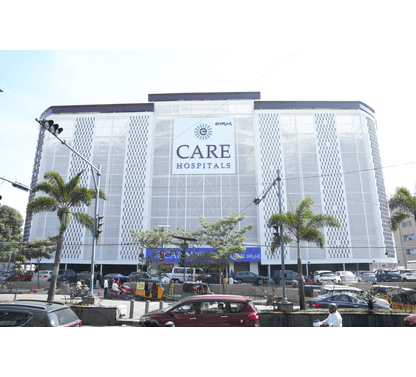
CARE Hospitals, Banjara Hills, Hyderabad
Road No.1, Banjara Hills, Hyderabad, Telangana - 500034
-
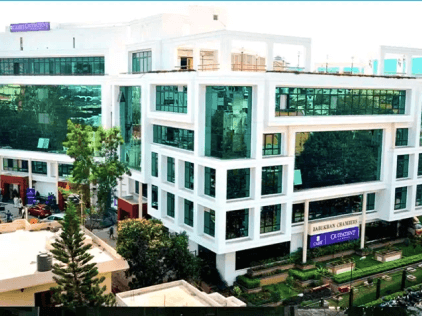
CARE Hospitals Outpatient Centre, Banjara Hills, Hyderabad
BabuKhan Chambers, Road No.10, Banjara Hills, Hyderabad, Telangana - 500034
-
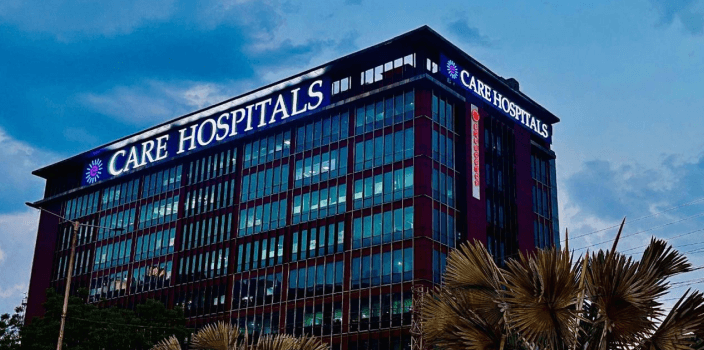
CARE Hospitals, HITEC City, Hyderabad
Old Mumbai Highway, Near Cyberabad Police Commissionerate, Jayabheri Pine Valley, HITEC City, Hyderabad, Telangana - 500032
-
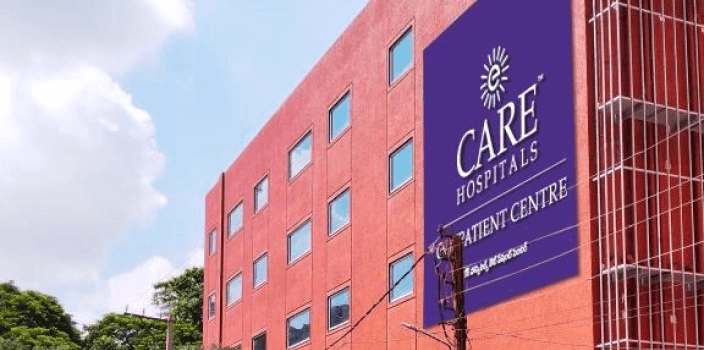
CARE Hospitals Outpatient Centre, HITEC City, Hyderabad
Jayabheri Pine Valley, Old Mumbai Highway, Near Cyberabad Police Commissionerate HITEC City, Hyderabad, Telangana - 500032
-
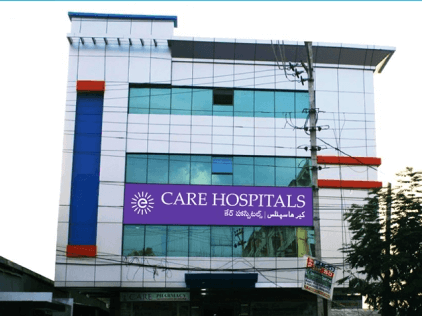
Gurunanak CARE Hospitals, Musheerabad, Hyderabad
1-4-908/7/1, Near Raja Deluxe Theatre, Bakaram, Musheerabad, Hyderabad, Telangana – 500020
-
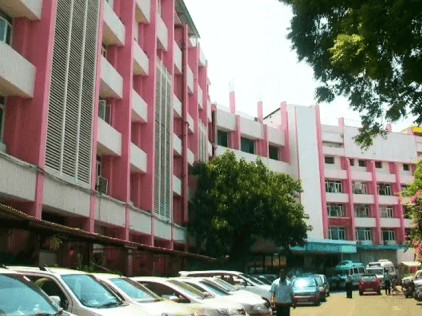
CARE Hospitals, Nampally, Hyderabad
Exhibition Grounds Road, Nampally, Hyderabad, Telangana – 500001
-
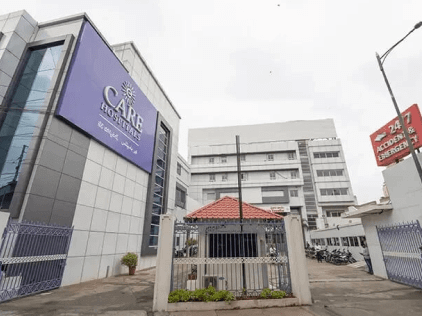
CARE Hospitals, Malakpet, Hyderabad
16-6-104 to 109, Old Kamal Theater Complex Chaderghat Road, Opp Niagara Hotel, Chaderghat, Hyderabad, Telangana - 500024
-
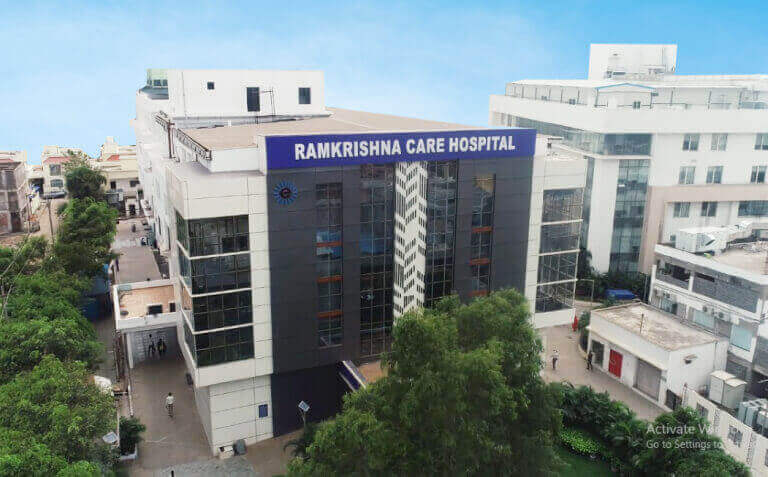
Ramkrishna CARE Hospitals, Raipur
Aurobindo Enclave, Pachpedhi Naka, Dhamtari Road, Raipur, Chhattisgarh - 492001
-
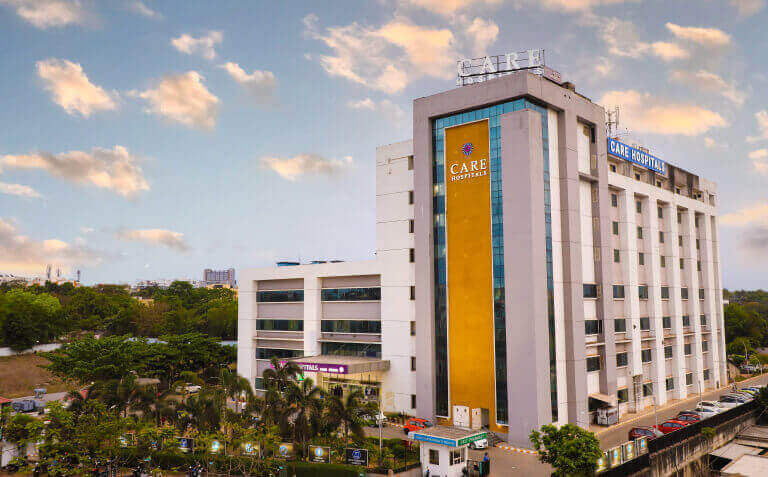
CARE Hospitals, Bhubaneswar
Unit No.42, Plot No. 324, Prachi Enclave Rd, Rail Vihar, Chandrasekharpur, Bhubaneswar, Odisha - 751016
-
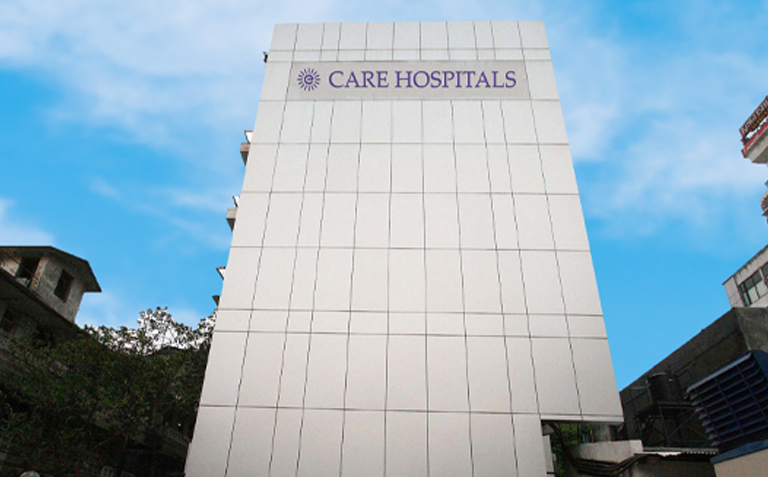
Ganga CARE Hospital Limited, Nagpur
3 Farmland, Panchsheel Square, Wardha Road, Nagpur, Maharashtra – 440012
-
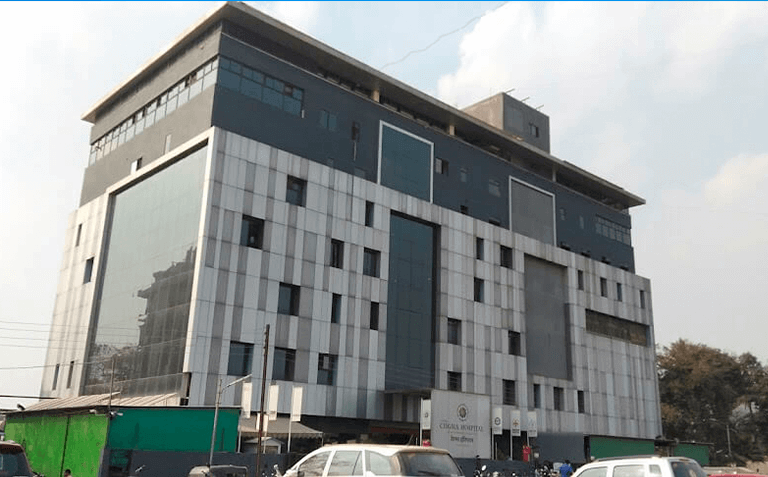
United CIIGMA Hospitals (A unit of CARE Hospitals), Chh. Sambhajinagar
Plot no 6, 7, Darga Rd, Shahnoorwadi, Chh. Sambhajinagar, Maharashtra 431005
Doctor Blogs
-

Lower Right Abdominal Pain: Common Causes & Treatment
Abdominal pain can result from various issues, some of which may not be a cause for concern. The lower abdomin...
11 February
Read More
-
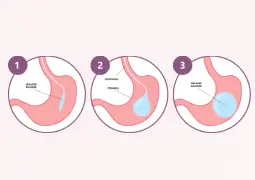
How to Lose Weight with the Allurion Gastric Pill Balloon Program?
The Allurion Gastric Pill Balloon program (previously known as the Elipse Gastric Balloon) is a popular ...
11 February
Read More
Doctor Videos
-


How effective are Robotic Surgeries? | Dr. Venugopal Pareek | CARE Hospitals
-


Why Obesity is a Major Health Concern? | World Obesity Day 2023 | Dr Tapas Mishra
-
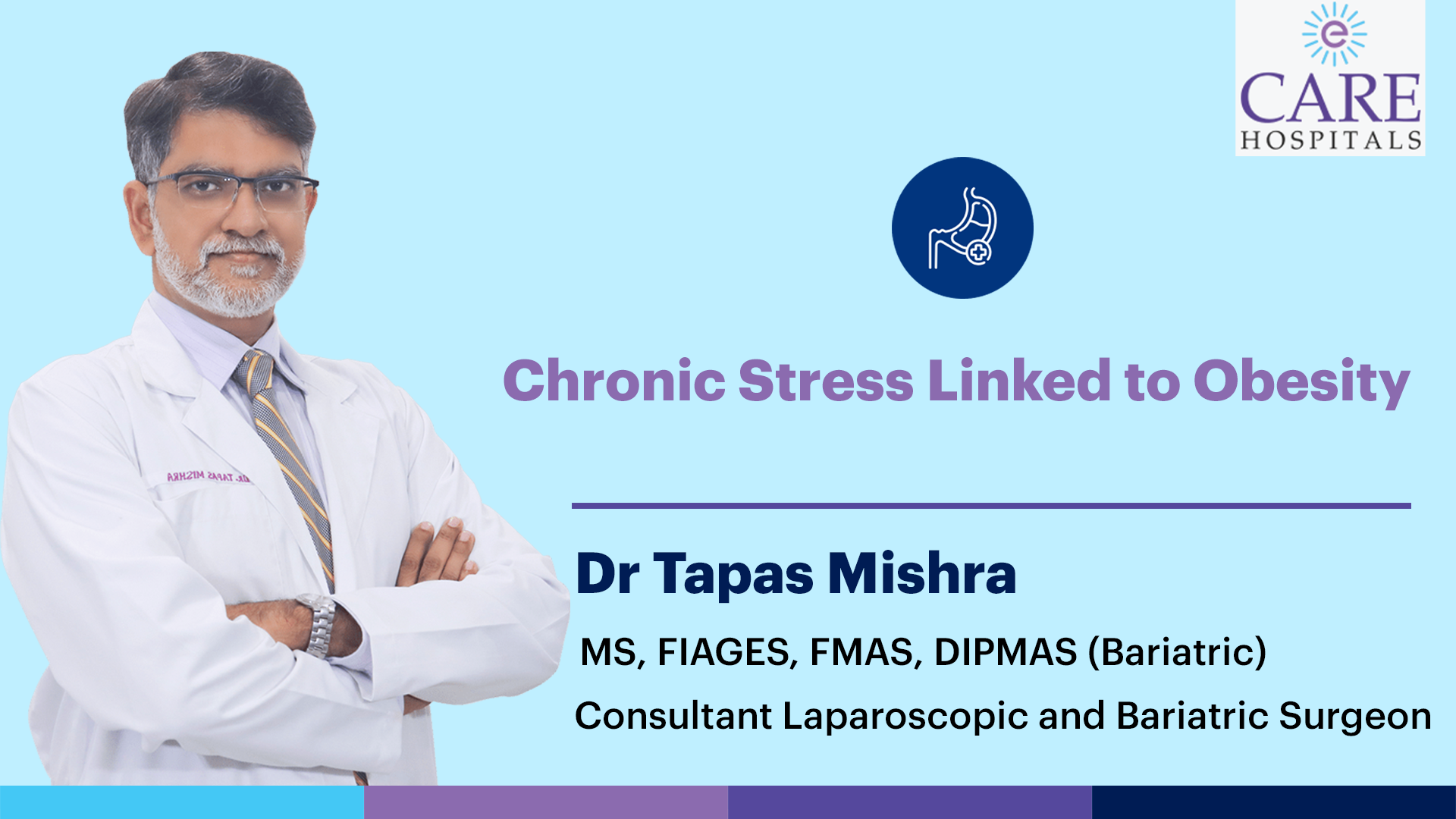

Stress and Obesity: The Link You Didn't Know About | Dr. Tapas Mishra | CARE Hospitals
-
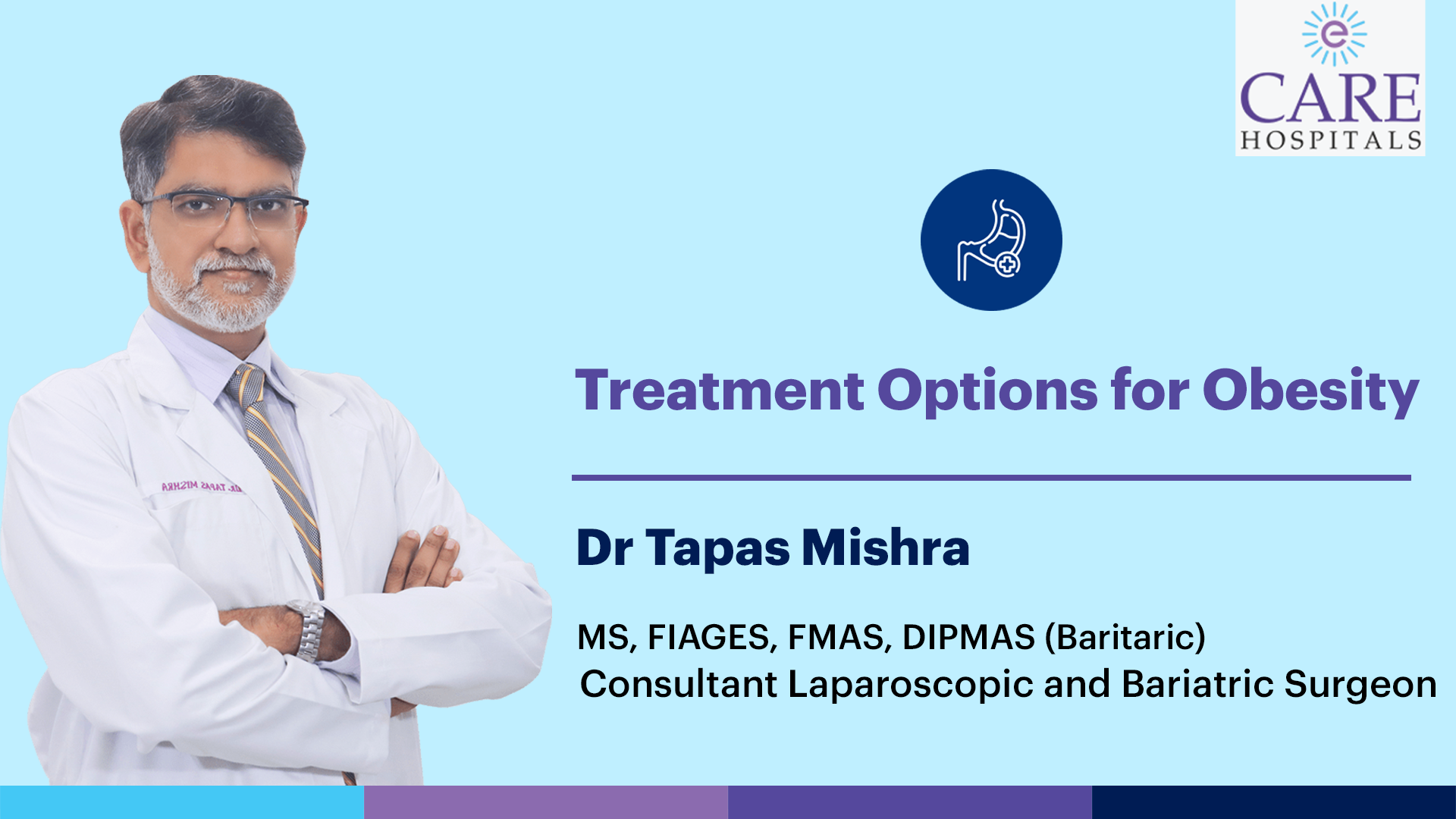

What are the treatment options for obesity? | Dr. Tapas Mishra | CARE Hospitals
-
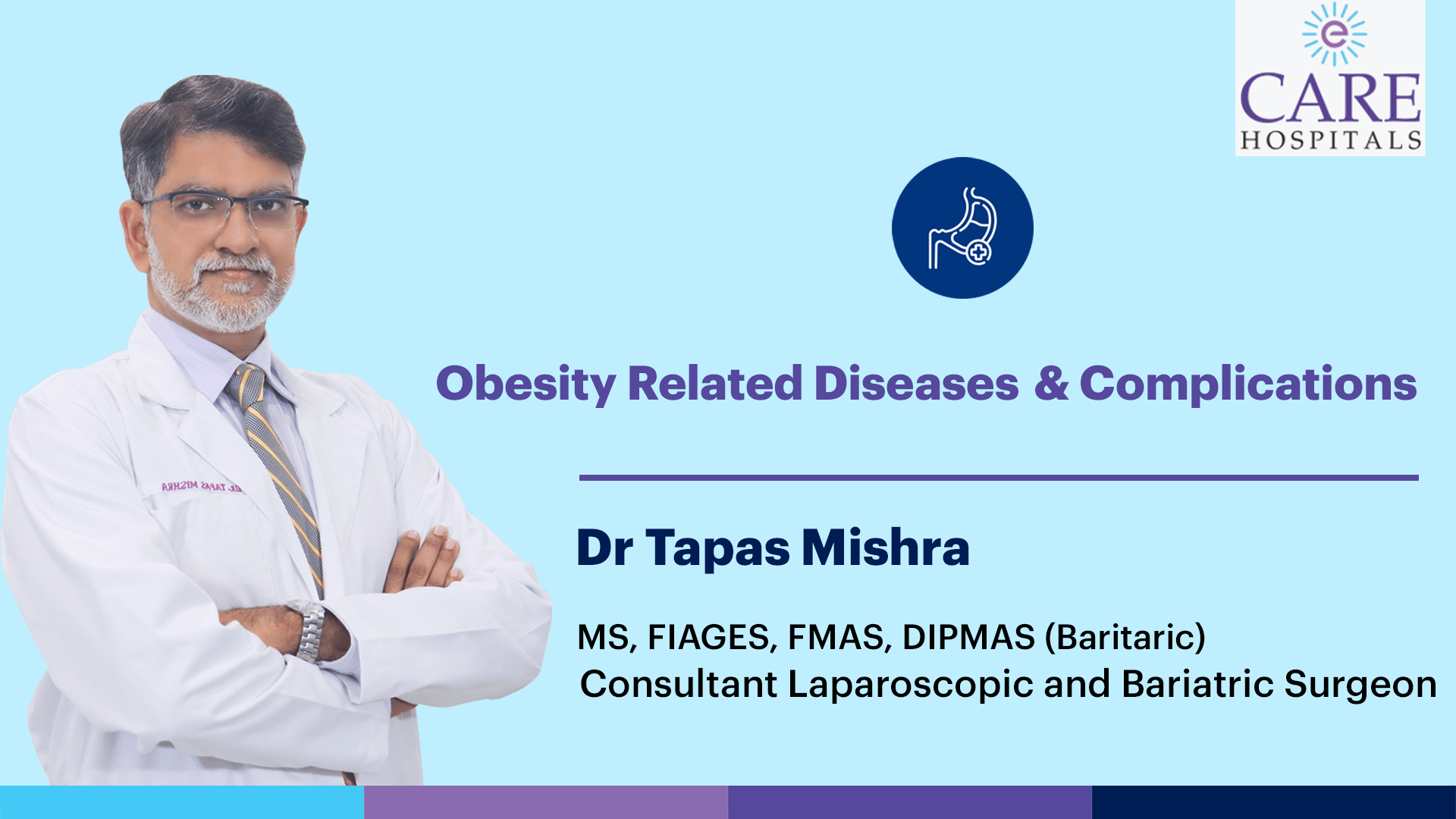

Obesity-Related Diseases and Complications: What You Need To Know | Dr. M. Tapas | CARE Hospitals
-
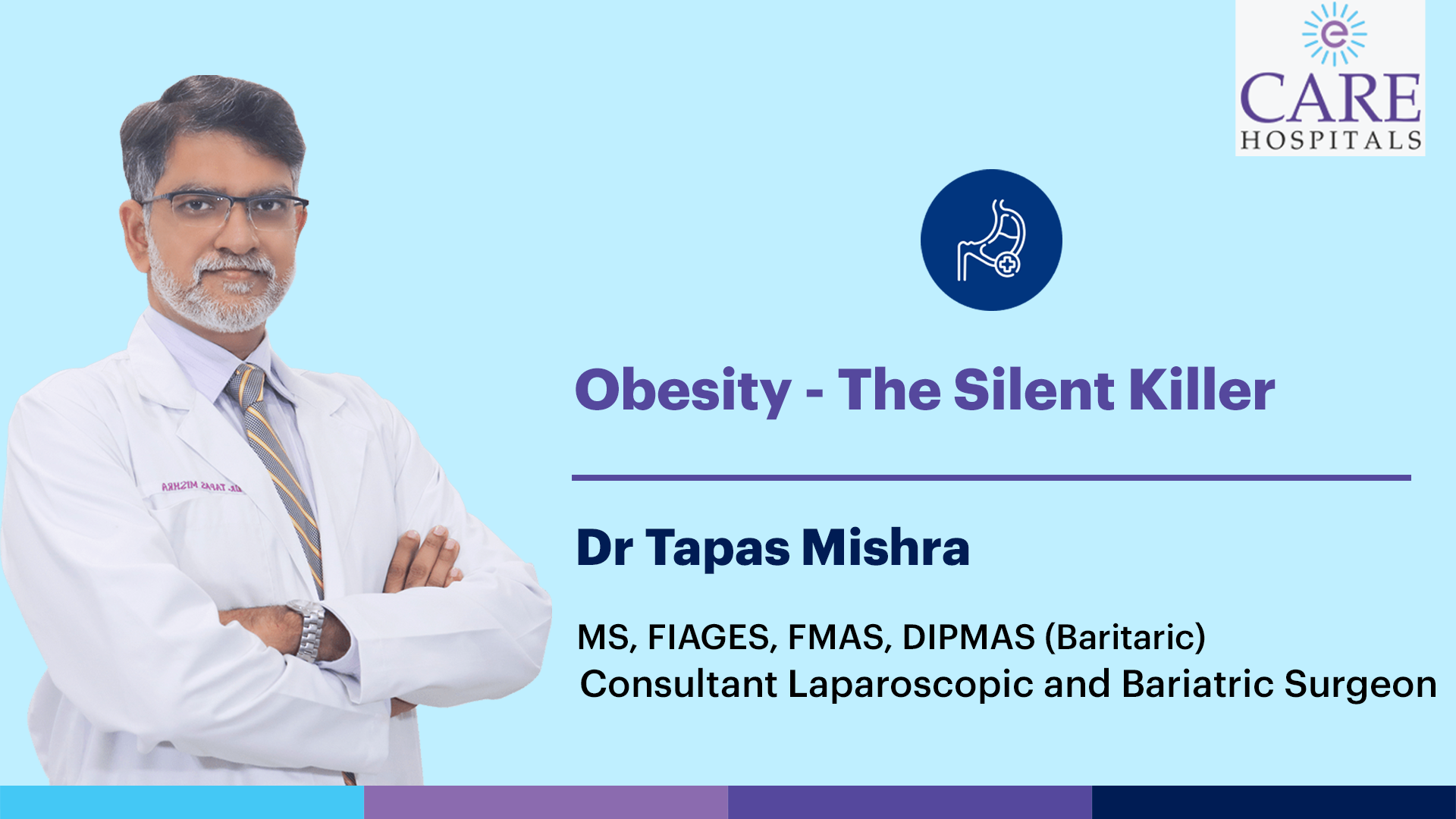

Obesity - The Silent Killer | Dr. Tapas Mishra | CARE Hospitals
-


CARE Hospitals, Banjara Hills performs the first Robotic Bariatric Surgery using HUGO RAS System
-


बूढ़े लोगों के लिए मोटापे का इलाज | Dr. Venugopal Pareek | World Obesity Day 2022 | CARE Hospitals
-


Challenges in the treatment of obesity in the elderly | Dr. Venugopal Pareek | World Obesity Day
-


Can Obesity Effect Fertility | Dr. Venugopal Pareek | World Obesity Day 2022 | CARE Hospitals
-


Life after bariatric surgery? explained by Dr. Venugopal Pareek | CARE Hospitals
-


How does Bariatric surgery work? Dr. Venugopal Pareek | CARE Hospitals, Banjara Hills
-


Dr. Venugopal Pareek talk on Hernia and it's common types | CARE Hospitals
-


How to choose the best type of weight loss surgery | Dr. Venugopal Pareek | CARE Hospitals
-


Treatment options for Gastroesophageal reflux disease (GERD) | Dr Venugopal Pareek | CARE Hospitals
-


Weight loss and Quality of life after bariatric surgery | Dr. Venugopal Pareek | CARE Hospitals
-


Types of Bariatric Procedures | Dr. Venugopal Pareek | CARE Hospitals
-


Common Types of Gastrointestinal Surgical Procedures | Dr. Venugopal Pareek | CARE Hospitals
-


Bariatric surgery and type 2 diabetes | Dr. Venugopal Pareek | CARE Hospitals, Banjara Hills
-


Bariatric Surgery Risks, Complications & Side Effects | Dr. Venugopal Pareek | CARE Hospitals
-


What is the best way of treating type 2 diabetes and obesity | Dr. Venugopal Pareek | CARE Hospitals
-


What is the safest and most effective weight loss surgery | Dr. Venugopal Pareek | CARE Hospitals
Still Have a Question?


